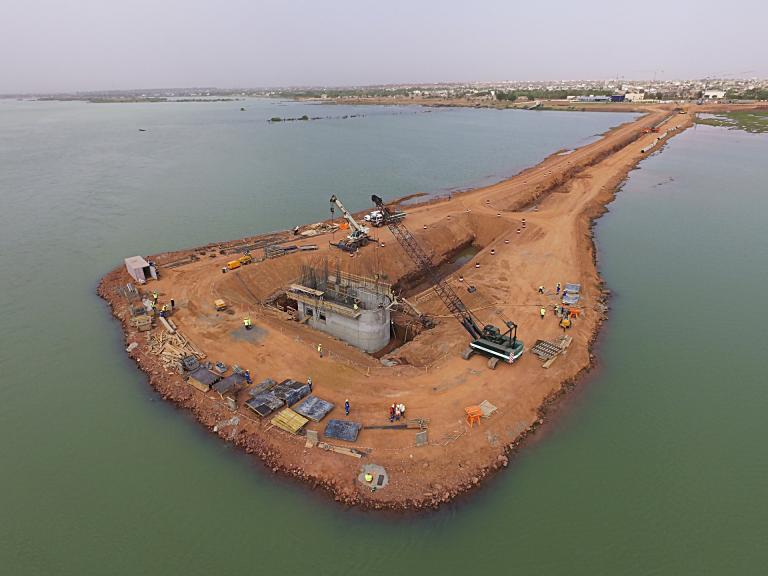-
Last updated on

Mining in South Africa. © Shutterstock
The world is facing radical evolutions, to which the use of new technologies will be central. The production of solar panels, wind turbines, electric vehicles and batteries requires a considerable quantity of raw materials such as cobalt, lithium, tantalum, copper, nickel, chrome, iron, silver, tellurium, rare earths, etc. All manner of electronic devices such as smartphones and computers contain tin, tantalum, tungsten and gold (collectively known as “3TG”).
Fragile states
As it happens, these raw materials are often located in fragile states with weak institutions and a considerable amount of corruption. The profits from the mining sector do not sufficiently benefit general welfare, never mind that of the local population which is living in poverty. What is more, the proceeds from mining are often used to finance all manner of armed groups, who terrorise the population with violence and sexual abuse. The growing worldwide demand for raw materials makes all this even more serious.
Luckily, the EITI, a joint venture between authorities, the mining industry and civil society, has existed since 2003. The EITI's aim is to make the money flows from mining (oil, gas, minerals) more transparent in order to reduce corruption and increase the gains from the income for the population. What began as a limited number of rules around the collection of taxes and the publication of mining permits has grown into an international standard with countless points for attention around democracy, the environment and good management.
International standard
Among other things, the participating countries commit themselves to making the following aspects public: the contribution of mining towards the national economy, data on the production, a description of the taxation system, an overview of mining permits and license-holders, a description of how the income from mining is taken into account in the national budgets, the role of state-owned companies and so on. Countries are also encouraged to publish contracts, alongside details on the actual owners of the companies. After all, these are often unknown because they reside abroad and work with local managers. In short, a far-reaching package of requirements.
There are 52 implementing countries in the EITI, in particular a great many African countries such as the DR Congo, Tanzania, Burkina Faso and the Central African Republic, along with countries from Asia such as Kazakhstan, Indonesia, Mongolia and Colombia, as well as several European countries such as Norway and Germany.
Good score
Each country must draw up an annual report on its progress in relation to the EITI standard, while the EITI's International Secretariat regularly draws up monitoring reports. ‘But just because a country gets a good score, that doesn't mean everything is in tip-top condition,’ explains Jean-Louis Pont, who monitors the EITI for the FPS Foreign Affairs. ‘We're talking about a gradual process with slow progress. Countries that don't meet the requirements can definitely be excluded, however. This was the case with Niger, for example, because the civil society there wasn't free enough. The country made some remarkable progress and now wants to be a member again.’
There are disadvantages to being excluded. ‘Excluded countries suffer damage to their image,’ says Pont. ‘It's harder for them to demonstrate that they're reputable production countries. That means it's often less smooth for them to get loans from international financial institutions such as the World Bank and the International Monetary Fund.’
According to Pont, the EITI's main weakness is that most of its members are relatively small or mid-sized production countries, except for countries like Norway and Germany. ‘The EITI would be a lot stronger if the large mining countries like the US, China and India were also members. But that's not on the agenda for the moment.’
2.5 trillion dollars
Despite the slow progress, Jean-Louis Pont remains enthusiastic. ‘You have to bear in mind that the situation when the EITI was founded in 2003 was truly disastrous. You can't change that completely in just 15 years! Take the Republic of the Congo, for example. Almost all of the NGOs there were initially shadow groups, driven by local political or economic powers. Thanks to the EITI, civil society there has made strong gains in credibility and now has a seat at the table. The DR Congo currently has a new mining code. The EITI definitely played a role in that.’
The EITI itself reports that, in the past decade, 2.5 trillion dollars of income from taxes and other income was made public in the EITI countries. The standard is regularly revised. This was how consideration for the harmful impact on the environment came about. Indeed, mines are often notorious environmental polluters, which also use a lot of water. Although difficult to map out, the EITI is also attempting to gain a view of traditional mining. Millions of people are making an income from it.

In search of gold in Tanzania. Although difficult to map out, the EITI is also attempting to gain a view of traditional mining. © Shutterstock
Belgium provides support
Belgium – although it is no longer a mining country itself – is a fervent advocate for the EITI. Since 2017, this country has been giving 100,000 euros to the International Secretariat every year. The Extractives Governance Programmatic Support (EGPS) – a fund from the World Bank – gets 425,000 euros each year. The EGPS supports the EITI, in particular with building up capacity in implementing countries, with a special focus on poor and fragile countries.
Belgium plays an active role in the meetings of the executive boards, notably as an observer with the EITI and as a full member with the EGPS. Next year, our country will be a co-ordinating member of a donor group with the EITI.
In a world where international collaboration is under increasing pressure, the EITI is calmly getting on with the job. In the meantime, the initiative has certainly demonstrated a significant impact. And this can only be benefiting the 3.5 billion people living in countries that are rich in oil, gas and minerals. At the same time, that also means robust support for the UN's Sustainable Development Goals.
The EITI: how it came about
In the late 1990s and early 2000s, more and more data were released on the considerable profits from mining which, paradoxically enough, were leading to greater poverty, conflict and corruption. NGOs such as Global Witness, Human Rights Watch and Oxfam America also ran campaigns on this theme.
Gradually, the realisation grew that it was not enough to put just one country or one company under pressure “to publish what they paid”. There was a need for a “tripartite” formula at an international level: authorities, companies and NGOs needed to be sitting around the same table.
Following calls from the British Prime Minister at the time, Tony Blair, at the World Summit for Sustainable Development in Johannesburg in 2002, the British Department for International Development (DfID) organised a meeting for companies, civil society and government representatives in 2003. This was what led to the Extractive Industries Transparency Initiative (EITI).
The theme was also on the agenda at various G8 summits. The G8 asked the World Bank to support governments that adopted greater transparency. The World Bank subsequently established a fund in 2004, which has been known as the Extractives Governance Programmatic Support (EGPS) since 2016.
The EITI has an International Secretariat and an Executive Board, composed in line with the tripartite formula. It carries out inspections and arranges a meeting 3 times per year to discuss the global strategy and general management.
More on Economy

Doing business in Africa: more fascinating than ever!
What is it like doing business in Africa? Bruno Geltmeyer, Managing Director of Denys NV, a specialist in major infrastructure w...

Healthy plants concern all of us!
In 2020, the international community puts the spotlight on plant health, as healthy plants form the basis of our food, our oxyge...

10 tips for ethical and eco-friendly clothing
The fashion industry is known as one of the most polluting industries. Moreover, the labour conditions for textile workers leave...
